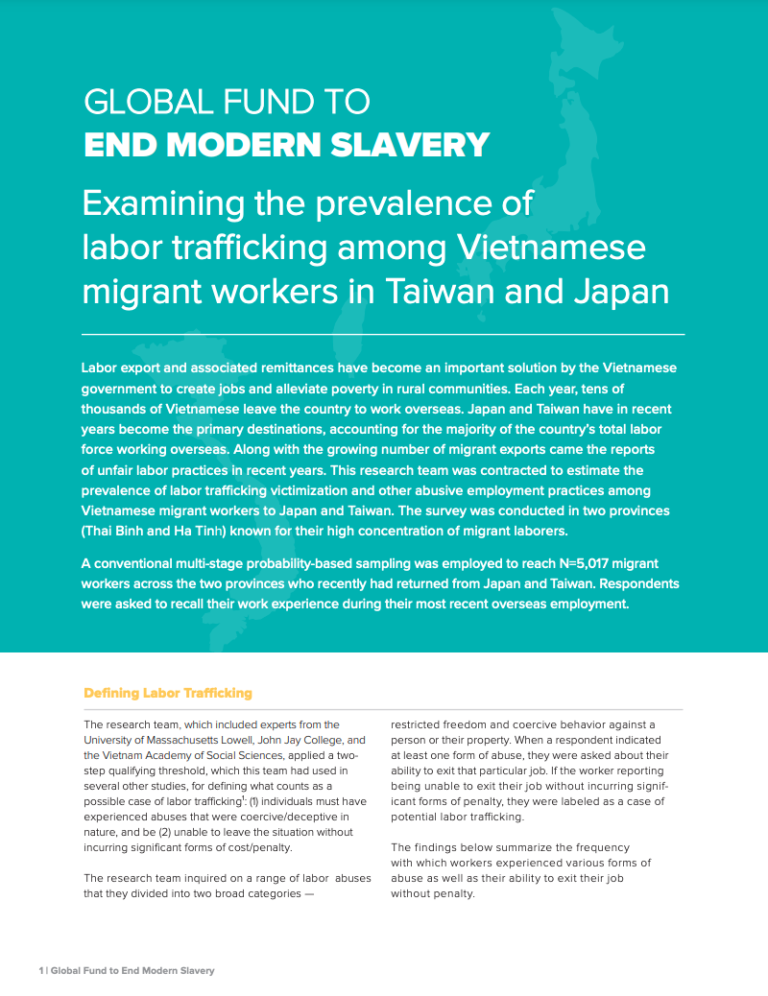Labor export and associated remittances have become an important solution by the Vietnamese government to create jobs and alleviate poverty in rural communities. Each year, tens of thousands of Vietnamese leave the country to work overseas. Japan and Taiwan have in recent years become the primary destinations, accounting for the majority of the country’s total labor force working overseas. Along with the growing number of migrant exports came the reports of unfair labor practices in recent years. This research team was contracted to estimate the prevalence of labor trafficking victimization and other abusive employment practices among Vietnamese migrant workers to Japan and Taiwan. The survey was conducted in two provinces (Thai Binh and Ha Tinh) known for their high concentration of migrant laborers.
A conventional multi-stage probability-based sampling was employed to reach N=5,017 migrant workers across the two provinces who recently had returned from Japan and Taiwan. Respondents were asked to recall their work experience during their most recent overseas employment

